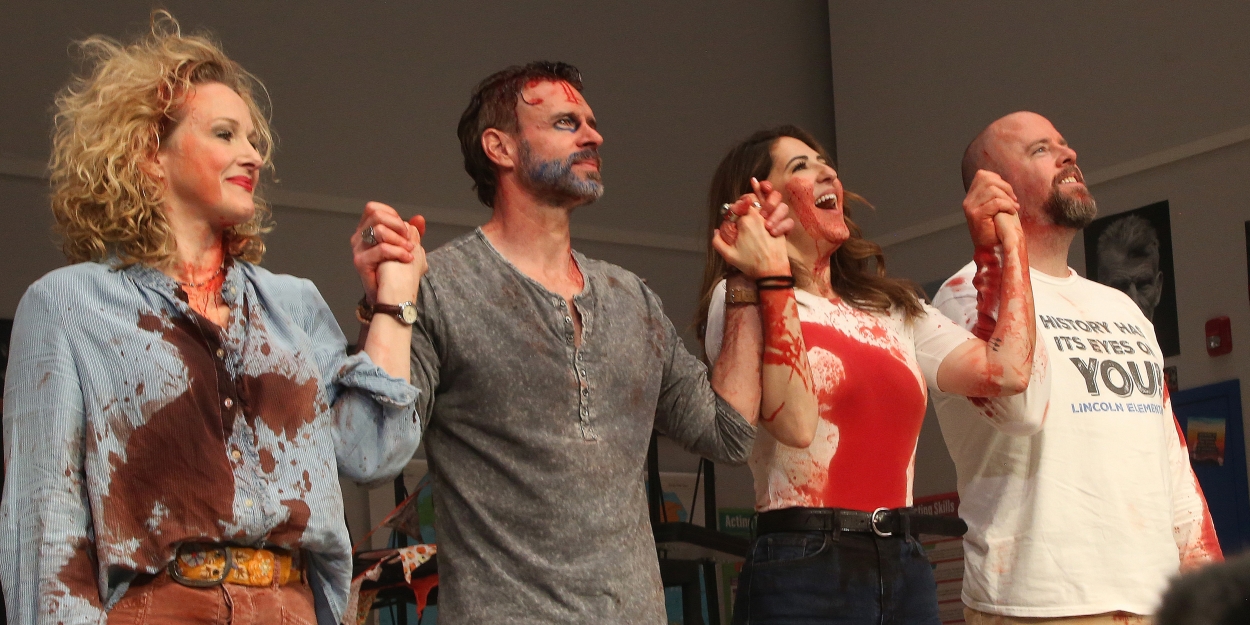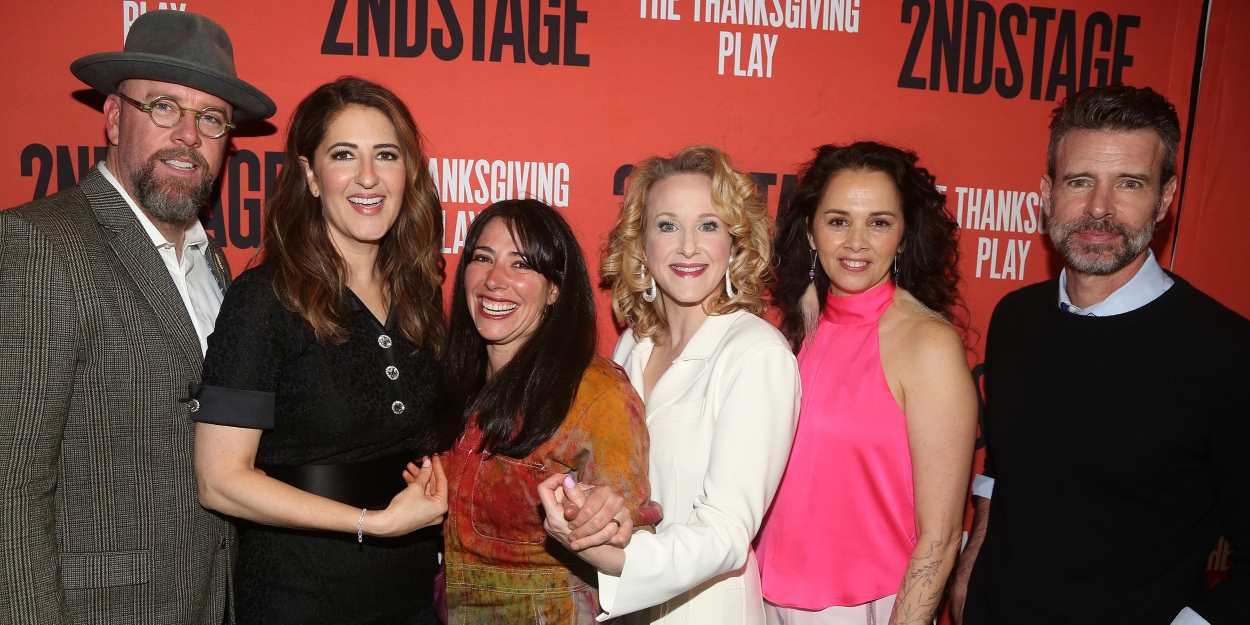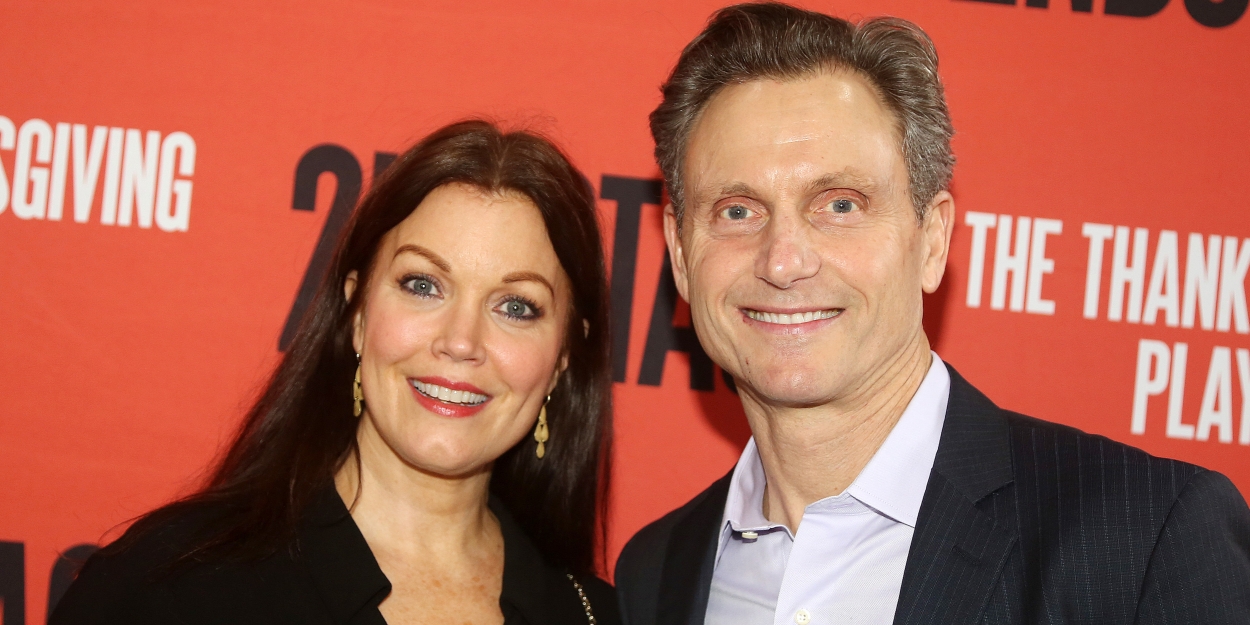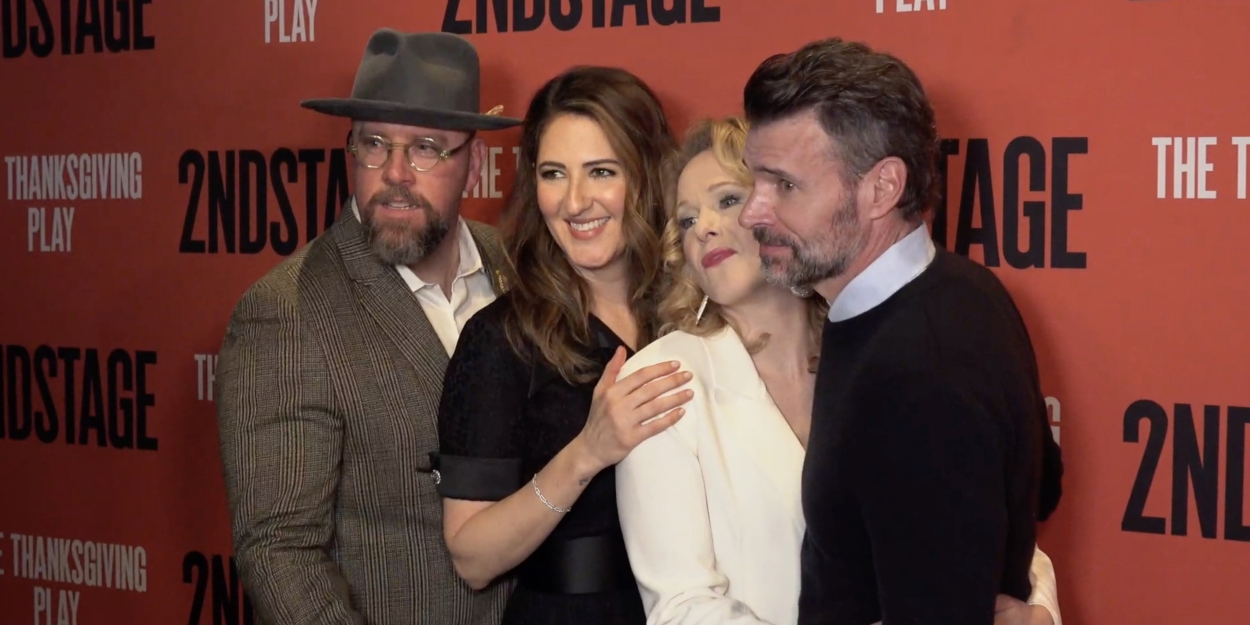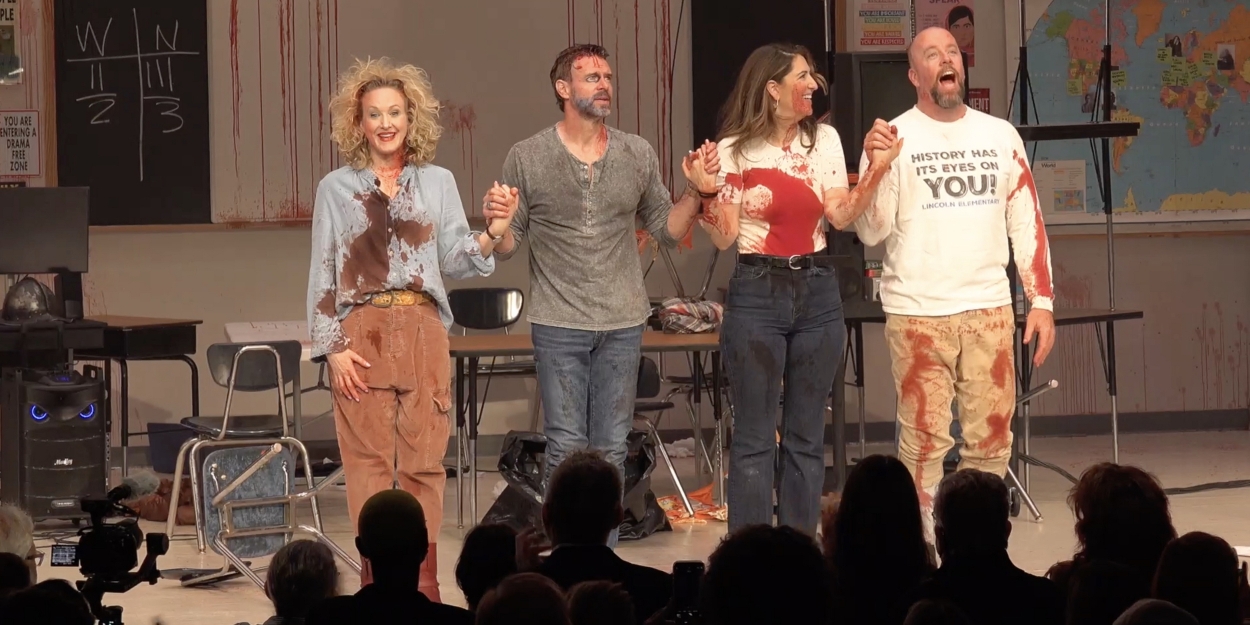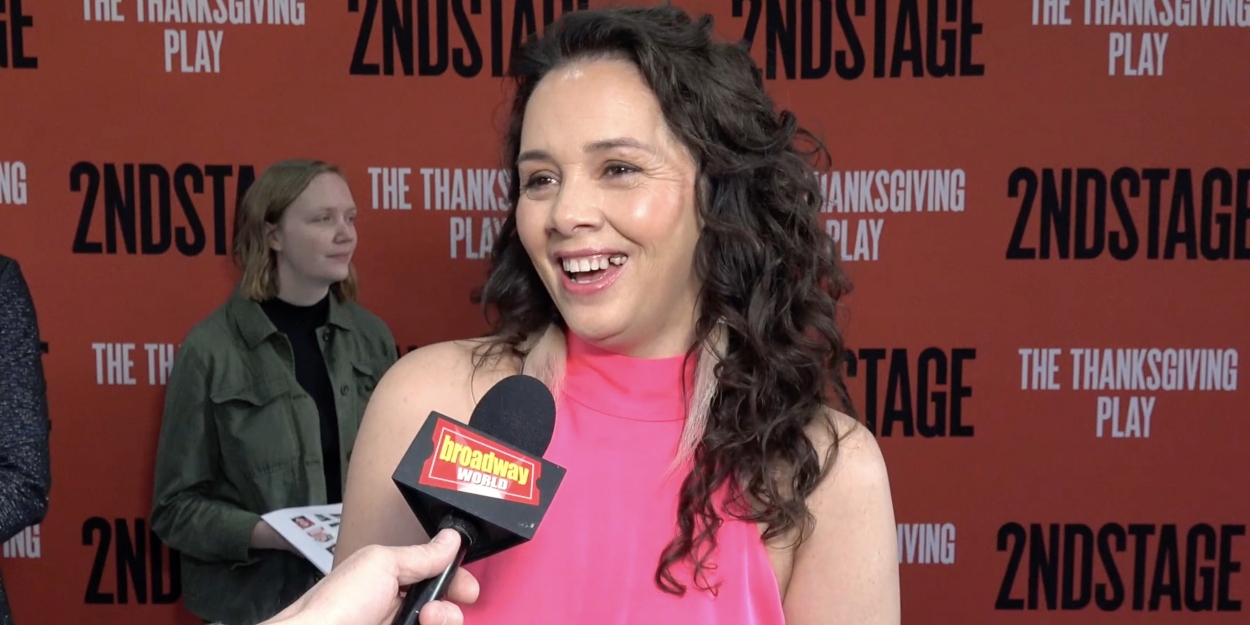Review Roundup: THE THANKSGIVING PLAY Opens On Broadway Starring D'Arcy Carden, Katie Finneran, Scott Foley, and Chris Sullivan
The production is helmed by the Tony Award-winning director of 'Hadestown', Rachel Chavkin
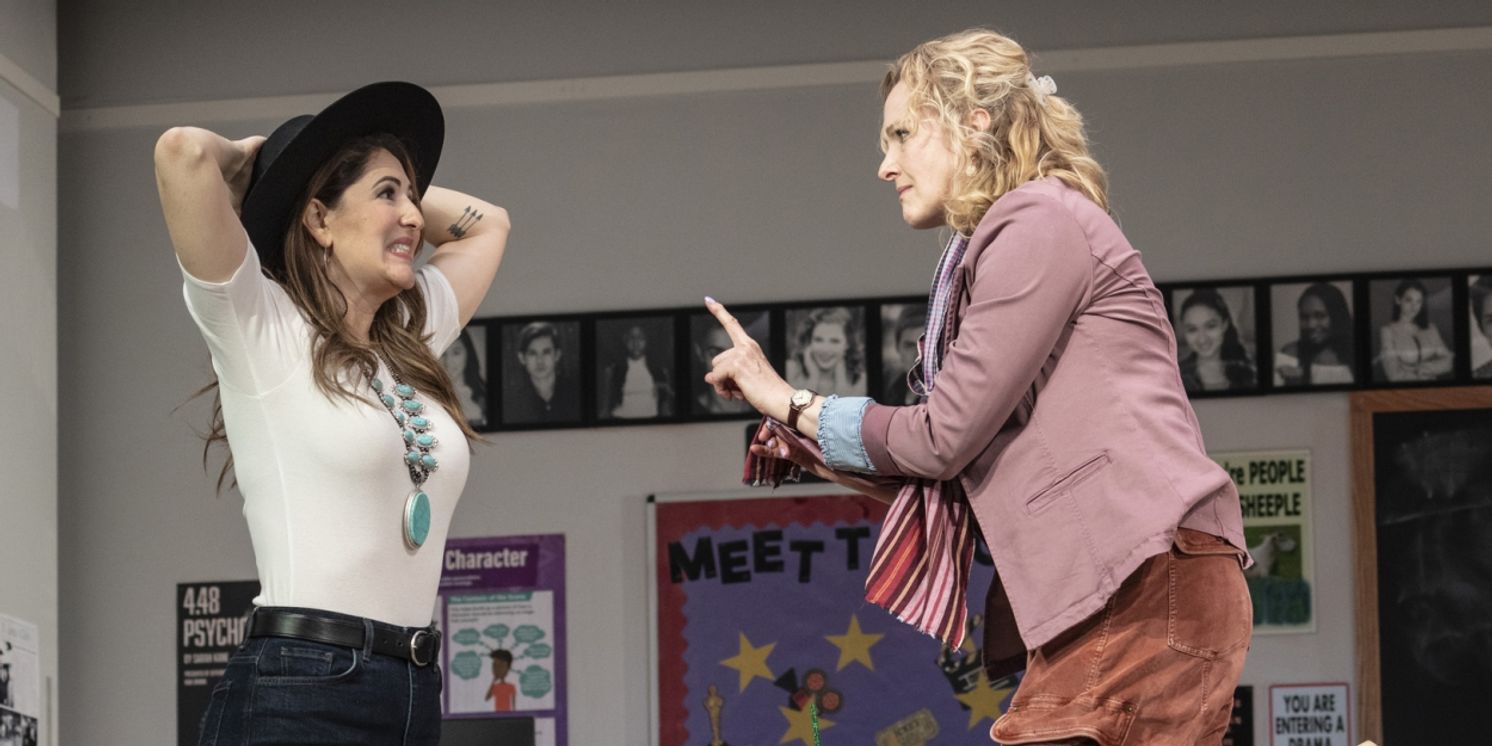
Second Stage Theater's production of Larissa FastHorse's play, The Thanksgiving Play, directed by Tony Award-winner Rachel Chavkin, opens tonight at Second Stage's Hayes Theater (240 West 44th Street).
Read reviews for the production!
The production stars Emmy Award-nominee D'Arcy Carden ("The Good Place," "A League of Their Own"), Two-time Tony Award-winner Katie Finneran (Noises Off; Promises, Promises), Scott Foley ("Scandal," "The Unit"), and Two-time Emmy Award-nominee Chris Sullivan ("This Is Us," Hadestown).
MacArthur Genius Larissa FastHorse's shocking satire flips the bird on one of America's most prolific myths. The Thanksgiving Play arrives on Broadway in a brutally funny and raw new production directed by Tony Award-winner Rachel Chavkin (Hadestown, Great Comet). When a troupe of really, really well-meaning theater artists attempt to put on a culturally sensitive Thanksgiving school pageant, things get messy. Hilarious and poignant, this delicious play skewers everything right, wrong, and woke in America.
The creative team for The Thanksgiving Play includes scenic design by Riccardo Hernandez, costume design by Lux Haac, lighting design by Jeanette Oui-Suk Yew, sound design by Mikaal Sulaiman, and video/projection design by David Bengali. Casting is by Telsey + Co.
Jesse Green, The New York Times: Repeated several times over the course of 90 minutes, that cycle — enhanced by Chavkin’s pacing, which leaves you swallowing your laughter — can lead to an upset stomach. And the characters are sometimes so exaggerated for satire that they lose their grip on your emotions. Still, by the time the bloody tale of the Pequot massacre is enacted onstage, you may find yourself agreeing with Logan, of all people. Being a vegan, she already struggles with the “holiday of death”; I wanted to disown it entirely, from the turkeys all the way back to the Pilgrims. But “The Thanksgiving Play” is not primarily a brief for correcting American history. Like Tracy Letts’s “The Minutes,” which also uncovered a horrific massacre hiding in the clothing of civic pageantry, FastHorse is interested in how new information (new only to some people) might change the stories we tell in the future. The first step, to judge by the absurd crew onstage, will be to change the storytellers. FastHorse being the first Native American woman known to have a play produced on Broadway, maybe we’ve finally started.
Naveen Kumar, Variety: It’s a testament to the breakneck pace of the past eight years that “The Thanksgiving Play” would be better off set when it was written. The substance of its argument is no less pressing: How and by whom stories get told perpetuate systems of power and oppression. But the objects of its satire seem both too easy a mark and already expired. It’s true that vanity, complacency and self-congratulations hinder progress, but such illusions have largely gone up in smoke. The winds of backlash have shifted, the schoolhouse is on fire and the hose is needed elsewhere. To their credit, the players do eventually reach a realization, if one that seems even more obvious today — that white creators ought to do less, leaving space for others to tell their own stories. Hopefully “The Thanksgiving Play” clears the way for future artists like FastHorse to do just that.
Adam Feldman, Time Out New York: FastHorse effectively roasts her characters as turkeys, trussed by their own self-consciousness. In a swift 90 minutes, The Thanksgiving Play delivers solid laughs at the expense of targets that are admittedly, at this point, not unfamiliar: clueless liberals so busy holding space that they don’t get around to filling it with anything. What the play doesn’t do is provide much sense of a better solution to the questions that its hapless theater folks are stultified by. This absence leaves you with a question, at the end, that is double-edged: Where the representation of identity and history are concerned, is nothing good enough?
Greg Evans, Deadline: Opening tonight at the Hayes Theater, The Thanksgiving Play, directed by Rachel Chavkin (Hadestown, Natasha, Pierre & the Great Comet of 1812) and starring D’Arcy Carden, Katie Finneran, Scott Foley, and Chris Sullivan – all of whom, director and cast, have done much better work on other stages – is the sort of easy-target satire that should by all rights have sophisticated New York audiences seeing their own foibles and smiling at their own political vulnerabilities.
Robert Hofler, The Wrap: “The Thanksgiving Play” runs 90 minutes without intermission. Interspersed throughout the show are a number of filmed school pageants in which “students” perform their own well-meaning and ridiculous enactments of Thanksgiving. All together, these filmed segments run approximately 15 minutes, giving the four live actors about 75 minutes to perform, which is about an hour more than Saturday Night Live would have taken to satirize this topic of woke run amok. Because “The Thanksgiving Play” runs about an hour longer than it should, a strange thing happens as its four characters grapple with the impossibility of Logan’s assignment: The most manipulative and openly self-centered of the characters steals the show. In her Broadway debut, Carden wins most of the laughs by doing little more than rolling her eyes, seductively throwing her hair back and applying yet another layer of lip gloss.
Jackson McHenry, Vulture: If history is written by the victors, it’s being rewritten — still by the victors — in The Thanksgiving Play. In Larissa FastHorse’s satire, a group of liberal-minded white people gathers to devise a play about Thanksgiving that will honor a Native American perspective on the atrocities Pilgrims committed without any insight into an actual Native American perspective. Their project, as you’d expect, goes wrong quickly. The problem is that The Thanksgiving Play intentionally hurtles its characters toward a dead end — like Wile E. Coyote toward a tunnel entrance that’s just drawn on the side of a rock — and it gets stuck once they crash. It takes them down but never justifies why we’re here with them in the first place.
Christian Holub, Entertainment Weekly: Carden is absolutely hilarious as the airheaded Alicia. Considering that she first rose to prominence playing the omniscient artificial intelligence Janet on The Good Place, the role really shows off her range. Sullivan makes Caden's insistence on correcting uses of the term "pilgrims" with "well, they called themselves Separatists" funnier every time, Foley admirably keeps a straight face while demonstrating how his character's sensitivity can so easily run all the way back around to ignorance, and Finneran gets more and more hilariously frazzled as Logan's goals collapse around her. The next Thanksgiving is more than half a year away at this point, but the questions posed by The Thanksgiving Play are worth pondering at any time.
Juan A. Ramirez, Theatrely: For the most part, it’s a succession of “Who’s on first?” bits that start to drag, despite the cast’s—including MVP Finneran (“This is post-BLM and there are grants at stake!”)—best efforts. And Rachel Chavkin, who masterfully mapped farce and intellect onto onstage bodies in How to Defend Yourself earlier this season, here struggles to create slapstick out of a should-be drama of ideas. Running under 90 minutes, with agreeable performances across the board, The Thanksgiving Play is not a bad time. But without a distinct point of view, its bottom line of “Thanksgiving is problematic” renders it only a pleasant, toothless, pilgrimage to the theatre.
Tim Teeman, The Daily Beast: The Thanksgiving Play makes fun of earnest white liberals acting in overly socially conscious ways, in much the same way as Bill Maher does every Friday night. Sure, have at it. But the shared derision is, in essence, no different to the fulminations against “woke” and “political correctness” of the right wing. The end result is the same: the “woke” and “politically correct” end up as being seen as the villains, rather than those brazenly and unapologetically attacking and destroying the rights of minorities. Are the white liberal “woke” the enemy of progress at this cultural moment, or do they just make for an easier comedy target than those succeeding in their efforts to attack the most marginalized groups in society? Perhaps playwrights will focus on their imaginations on bigger, clear and present monsters—and quit the lazy shooting of fish in the barrel. In the climate of now, these jokes are just adding to a depressingly destructive chorus.
Jonathan Mandell, New York Theater: “The Thanksgiving Play” has the laughs, but I don’t get the sense of the characters as dedicated educators, and it doesn’t lead us to any special understanding.
David Finkle, New York Stage Review: Director Rachel Chavkin (Tony for Hadestown) has the able four working like Energizer bunnies. As Finneran always does, she wrings as much humor as there is to wring; in the circumstances, maybe even more. So do the other in-for-a-penny-in-for-a-pound players.
Frank Scheck, New York Stage Review: Not all of the jokes land, and even with its brief 90-minute running time, the evening ultimately has the feel of an overextended sketch. That’s particularly true of this new production directed by Rachel Chavkin, which feels much broader than the original staging and features some theatrical flourishes near the end that feel wholly unnecessary. But the play still delivers plenty of uproarious moments and this starrier Broadway cast milks them for all their worth, with Carden and Finneran particularly hilarious with their physical comedy.
Amelia Merrill, New York Theatre Guide: Spring doesn't seem the most logical season for the show's Broadway bow, but Rachel Chavkin’s tight production arrives with panache. Costume designer Lux Haac invokes the quintessential drama teacher vibe in Logan’s corduroy wardrobe, while scenic designer Riccardo Hernandez delights in the play’s Bacchanalian twist. Logan mines theatricality from the group with her demands to dig deeper and to be more honest with themselves, then shuts down the bloody spectacle, screeching her fears of the school board. The scene is a moment of triumph for the designers, but it doesn’t move the characters forward, perhaps on purpose. They will always be stuck in a circle of white guilt and trip over themselves while they debate how to escape. The damage is real, both on stages across the nation and off, but FastHorse's exploration of it is for everyone’s benefit, striking the balance between educational and entertaining without hammering home the reminder.
Average Rating: 53.1%
- To read more reviews, click here!
- Discuss the show on the BroadwayWorld Forum
Reader Reviews
Powered by
|
Videos


